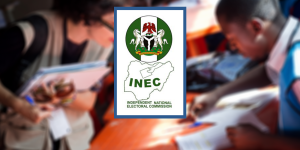Jammu And Kashmir: Beyond Repeal of Article 370 of The Constitution
Repeal of article 370 is a Measure to prevent international terrorism in Jammu and Kashmir which endangers or takes innocent human lives or jeopardizes fundamental freedoms, and stop the underlying causes of those forms of terrorism and acts of violence which lie in misery, frustration, grievance and despair and which cause some people to sacrifice human lives, including their own, in an attempt to effect radical changes” to “Measures to eliminate international terrorism” in Jammu and Kashmir. Beyond the repeal of article 370 are peace and economic development which will return to Jammu and Kashmir. Repeal of article 370 is a Counter-Terrorism Strategy on August 2019 against Pakistan. The strategy is a unique instrument to enhance national, regional and international efforts to counter terrorism in Jammu and Kashmir. Repeal of article 370 will remove Jammu and Kashmir from regions that are notorious for state sponsor of terrorism.Repeal of article 370 will allow India to tackle critical issues of the 21st century in Jammu and Kashmir. These issues can be ranked as follows, from the most complex to act upon, because they depend upon the laws of physics and biology and upon geological constraints, to those that could be (but are not) easier to address, because they imply social conventions only: (1) climate change; (2) demographics and the explosion in the number of elderly and chronically-ill people; (3) the social inequalities brought by digital technologies and more generally by fixed-cost integrated systems; (4) the concentration of power in the hands of increasingly footloose multi-national corporations; (5) the rise in poverty and precariousness for large fractions of the population, and, as a consequence of the above, (6) a rising wave of mass migrations and of xenophobic nationalism.
Repeal of article 370 is a common strategy and operational approach to fight terrorism, not only sending a clear message that terrorism is unacceptable in all its forms and manifestation but also resolving to take practical steps individually and collectively to prevent and combat it. Those practical steps include a wide array of measures ranging from strengthening state capacity to counter terrorist threats to better coordinating Indian system’s counter-terrorism activities.
Repeal of article 370 will promote Policy Innovation in Jammu and Kashmir
Today, government policies may not always be conducive enough for infrastructure development. They may be too focused on the short-term, not well-coordinated and constrained by too much rigidity. I believe there are at least two immediate areas that we can work on:
Firstly, Jammu and Kashmir infrastructure policies should be formulated with sufficient flexibility so as to cater to future needs and future technological advancements. Infrastructure projects have very long lifecycles. Demand will change over time. Technology will change. And circumstances will also change over time. Without flexibility, we will not be able to cope with increased demands or unforeseen constraints.
A second area is for Jammu and Kashmir government policies to be better coordinated across various sectors, to exploit synergy and make infrastructure much more efficient than it is today. The need for road systems, water piping systems and sewage systems, to be coordinated at the design, construction and maintenance stage, is well-known. The need for coordination of housing development, road constructions and other amenities is also well understood. In future, hopefully we can exploit other synergies.
Repeal of article 370 commits India to promoting industrialization for Jammu and Kashmir as a critical source of growth, economic diversification and value addition. Industralization continues attracting attention; being seen as a sector which when present has reliably improved economic diversification, helping India to nurture, strengthen and uphold the conditions for competitive growth and development.
Shri Amit Shah also introduced the Jammu and Kashmir (Reorganisation) Bill, 2019 making Jammu & Kashmir a Union teritory with a Legislative Assembly,along with Union Territory status to Ladakh without a Legislative Assembly. Further, the Jammu & Kashmir Reservation (2’d Amendment) Bill, 20L9 to amend the Jammu & Kashmir Reservation Act2004 was also introduced. This bill seeks to extend the 10o/o quota to economically weaker sections of society in J&K in jobs and educational institutions. Both the bills were passed by Rajya Sabha unanimously
Union Minister for Home Affairs, Shri Amit Shah, introduced two bills and two resolutions regarding Jammu & Kashmir (J&K) today. These are as follows:
Constitution (Application to Jammu & Kashmir) Order, 2019 {Ref. Article 370(1) of Constitution of India} issued by President of India to supersede the 1954 order related to Article 370. z. Resolution for Repeal of Article 370 of the Constitution of India {Ref. Article 370 (3)} o. Jammu & Kashmir (Reorganisation) Bill, 2019 {Ref. Article 3 of Constitution of India} 4. Jammu & Kashmir Reservation 12nd Amendment) Bill, 2019
Announcing a path breaking decision by the Government, Shri Shah said that the Government is moving a resolution which would repeal the provisions under Article 370 of the Constitution of India,which granted a special status to the state of J&K. The provisions of Article 370 would cease to exist from the date President of India issues a notification in this regard, after the recommendation of the Parliament. Consequently, the Constitution of India would get applicable to J&K, on par with other statesAJTs of the country, the Minister added
Further, the Minister termed the provisions of Article 370 as discriminatory on the basis of gender, class, caste and place of origin. The youth is being taken for a ride by the political elite. This provision was temporary in the first place and it has to go in the larger interest of the people of J&K, he added.
Under article 370(3), there is a provision that President, on recommendation of the Parliament, has the power to amend or cease the implementation of article 370,through a public notification. This has already happened on a number of occasions in the past. The Home Minister pointed out to the opposition that everyone knows how the article 370 is hampering the development of the people of the state.
Shah said that post the repeal of the Article 370, doors to private investment in J&K would be opened, which would in turn increase the potential for development there. Increased investments would lead to increased job creation and further betterment of socio-economic infrastructure in the state. Opening of buying of lands would bring in investments from private individuals and multinational companies and give a boost to the local economy, as opposed to the apprehensions raised by those opposing this historic step, he added.
Home Minister remembered the martyrdom of civilians and soldiers who have lost their lives during 1989-2018. He said that had article 370 would not been there, these people wouldn’t have lost their lives. Refugees who came from Pakistan after partition did not get citizenship till now. They cannot become councillors in the state. This has been a historical injustice to these people. As opposed to this, in rest of India two Prime Ministers were elected from those refugees.
Talking about terrorism, Shri Shah said that the youth has been misguided to pursue jihad on Pakistan’s nefarious designs. Thousands of civilians have died. \Mhy? It has been a stated policy of Pakistan to support article 370 and keep the youth away from getting into the mainstream of development and brain wash them into jihad. All the political parties with separatist ideology have vested interests to continue article 370. Their children do not get killed in the blood shed caused due to terrorism, hence support the article.
Rebutting the apprehension that removing article 370 would destroy Kashmiri culture, Shri Shah said that all states have preserved their culture and language after becoming apart of the Union of India. How does article 370 protect JK on this aspect, he asked. It is only and only a political propaganda that has blinded the youth of Kashmir into believing it for 70 years.
![]()




